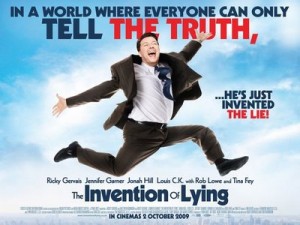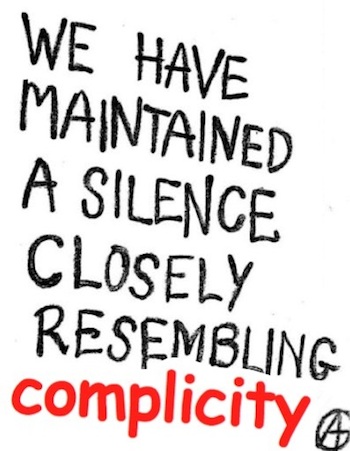Remember my comment from ‘When ‘gurus’ attack …’
I was encouraged by a comment recently in a BBC interview with John Podesta, former Clinton chief of staff and Obama administration transition head… Podesta says he sets out to be an independent even critical voice, and adds this proviso:
“If you’re going to be critical of your friends I think you ought do it on the record — not behind their backs.”
Yes. That, for me, makes a big difference. How you criticise is important.
The value of a direct approach
I recently met a really bright guy in the early stages of his career as a personal development guru.
It was a real pleasure to talk with him — he is mentally alert, has a keen sense of humour, a good memory for relevant quotes and appropriate anecdotes.
He also seemed abundantly ambitious to grow himself and his personal brand while, it seems to me, painfully aware that he needs to avoid the corrosive effects of unsubstantiated hyperbolic claims.
We talked pretty frankly about some of the “types” we’ve both come across in the personal development/’wealth creation’ (bleurgh) game and I was open with him about my reaction to the tactics I’ve seen used by those who market themselves as … well, as things they are not.
I could see (and he told me as much) that he wasn’t used to such straight talk.
We agreed that many people seem to suffer from a terrible debilitating “Will you like me?” anxiety … which can shred their authenticity and credibility. It can prevent them telling the truth.
Sometimes a listener can feel or sense this unspoken ‘withhold’ … but not know what is being hidden … they just perceive that they can’t trust the speaker.
Better, far better (as I told this guy) that I reveal my thoughts about a topic — or person — to you up-front … than for you to discover later — the hard way — that an operator who you’ve stumbled across, or been steered to, is a rogue and liar. (In my opinion or experience, I mean.)
How useful is it to you for me to later disclose to you (after you’d been burned):
“Yes, I thought that might happen, but I didn’t want to say anything.”
A fat lot of good that is!
Food for thought? – P



Indirect people, people who are hesitant, or struggle with saying who they are, what they want, and what they are feeling, cannot be completely trusted.
Their intentions are not always to deceive. They are not necessarily “bad” people. However, their actions will always eventually speak their truth. And that is when people can get a nasty surprise.
I read a quote somewhere that went something like – The truth is always better than a lie, even if it is a dreadful truth.
I have to completely agree with that.
“However, their actions will always eventually speak their truth.”
Crikey, that’s the truth! Yup.
Thanks for your thoughtful and thought-provoking comment, J.
Yes, I’d much rather be told the ‘dreadful truth’ than a palatable lie… something akin to ripping a plaster/band-aid off quickly … rather than death by a thousand cuts/disappointments? (OK, mangled-da-metaphors, but capiche?)
And that ‘Saying What You Want’ thing — so important. But uncommon in NZ culture, for some reason… – P
Just another thought on this discussion.
If someone chooses to say nothing at all about some detail, so does not directly lie but does not tell the truth either. Does this make them ‘bad people’?
“If someone chooses to say nothing at all about some detail,… Does this make them ‘bad people’?”
Thanks Craig. That question touches on what’s emerged as a theme of this blog, See my earlier post Why Speak Up? which features this image:

Let me share my opinion by asking you what you would do in this situation:
Say you were in your local park one day, enjoying the sun, and you observed a child, a toddler, approach a small bush flowering with bright red berries. Attracted by their moist brightness, the child reaches out and pulls some berries off the bush and gobbles them.
A few minutes later, as you watch, the child suddenly clutches her stomach and starts wailing with pain. The child’s parents who’d been nearby call an ambulance and, as you watch, the paramedics examine the stricken child, red berry juice still around her mouth and on her fingers … and rush her to hospital, saying, ‘She’ll need her stomach pumped to get the poison out!’
A week later, you’re at the same park again and, as you watch, another toddler — lured by the same bright red berries — approaches the bush.
The child’s parent, following behind, catches your eye and calls out to you, asking you: ‘Are those berries safe?’
What do you say? – P
In my personal opinion, omissions are lies. We don’t leave things out, exclude things, or forget to tell something that is good, or that we want people to know.
If you are omitting something, it is because you are hiding it. That, in my opinion, is indirect and deceitful, just as much as telling an outright lie is.
That may sound like a harsh line to take, and i can understand that not all people will agree with me on that, however i have spent enough time around people with hidden agendas to know that people rarely, if ever, omit the good.
Hi Jacqueline, good strong comment. Thanks.
“If you are omitting something, it is because you are hiding it. That, in my opinion, is indirect and deceitful, just as much as telling an outright lie is.”
Yeah, OK, but what if it’s none of their business? Refer to my hero Peter McWilliams:
http://www.thepaepae.com/the-problem-with-google/9800/comment-page-1/#comment-1234
Sometimes things are PRIVATE… (as I know you recognise 😉 ) and irrelevant.
In the encounter that sparked this conversation: a question, ‘What do you think of X?’
Yes, an omission of relevant information/opinion/evidence/history IS (I agree with you 100%) effectively a lie.
Surprisingly often, it takes courage to speak the truth.
But what else are we here for? – P
Ralph Waldo Emerson:
Really a re-hash / more eloquent version
of actions speak louder than words.
Thanks Perry, nice to hear from you.
I remember a year or so ago being castigated by an anonymous critic/sock-puppet on PropertyTalk called’ Slapper’ for my ‘actions’ (behaviour) — which WERE merely words … 😉
-P
[…] much prefer it when people stab you in the front as she does. We discussed this briefly in Taking a direct approach quoting former Clinton politico John Podesta: “If you’re going to be critical of your friends I […]